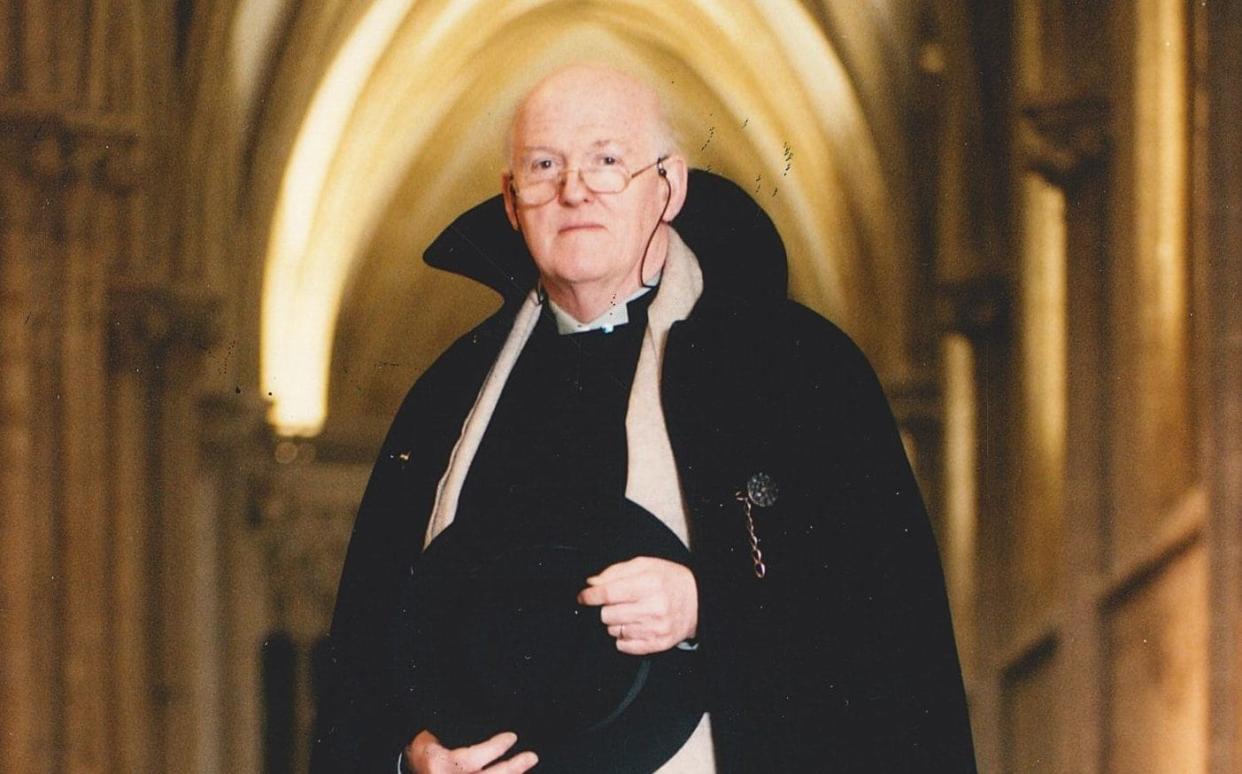The Very Reverend Richard Lewis, Dean of Wells and gifted pastor with an unrivalled knowledge of cathedral life – obituary

The Very Reverend Richard Lewis, who has died aged 86, was Dean of Wells from 1990 until 2003; he was a notable example of a highly regarded parish priest whose gifts were translated to an ancient cathedral with equal success.
Lewis was essentially a pastoral leader, but he also had administrative qualities and strong ideas about how the Church of England might best function in the contemporary world. These found considerable scope for expression when he became a member of a Commission on Cathedrals set up by the archbishops of Canterbury and York at the request of the deans and provosts of the English cathedrals.
The background was a series of scandals that caused wide public concern. At Hereford, the Dean and Chapter had proposed selling its historic Mappa Mundi to meet current financial problems. At Lincoln, the Dean and Chapter were at loggerheads of such intensity as to arouse anxiety about their understanding of Christianity. And at Exeter the head verger had been given a prison sentence after a large-scale misappropriation of money that had long gone unnoticed.
Added to which, English Heritage was beginning to divert state money for cathedral restoration – and needed assurance that this would be wisely spent.
The commission met for two years under the chairmanship of Lady (Elspeth) Howe, and Lewis proved to be an invaluable member. As secretary of the Deans’ and Provosts’ Conference he had acquired unrivalled knowledge of the Cathedrals and their problems.
When the report of the Commission appeared it was apparent that hardly an element in a Cathedral’s life had gone unexamined. Many of the proposals for reform were, in spite of robust defence by Lewis, rejected by the Chapters, but eventually a somewhat watered down version passed into law with the Cathedrals Measure (2000).
Later, it was Lewis’s turn to open fire on a report commissioned by the Archbishops’ Council concerned with the adequacy of the Church’s administration for a much-needed mission to counteract numerical decline.
The report’s recommendations were heavily biased towards models of secular management. Lewis, by then in retirement, was among those who strongly opposed this on the grounds of its unsuitability to an historical institution whose values were not those of most secular organisations. But they fought in vain, to his lasting disappointment.
Richard Lewis was born on Christmas Eve 1935 and went from the Royal Masonic School to Fitzwilliam House, Cambridge. He completed his training for Holy Orders at the liberal Ripon Hall, Oxford, and in 1960 became an assistant curate at Hinckley in Leicestershire.
Three years later he moved to Southwark diocese, then under the leadership of the dynamic and controversial Bishop Mervyn Stockwood. There he remained until his appointment to Wells.
He was Priest-in-Charge at St Edmund’s, Sanderstead, until 1966, and this was followed by five years as Vicar of All Saints, Merstham. Next, from 1972, came seven years as Vicar of Holy Trinity Church, South Wimbledon, where he continued to exercise a greatly valued ministry of carefully ordered worship, stimulating preaching and dedicated pastoral care.
The opportunity to share these more widely came in 1979 with his appointment as Vicar of St Barnabas Church, Dulwich, combined with the chaplaincy of Alleyn’s School. This suited him well and his impact on the school was as great as that on the parish.
At the same time, Lewis took on several diocesan responsibilities, and Stockwood’s successor, Bishop Ronald Bowlby, used him especially for the handling of pastoral problems. He was made an Honorary Canon of Southwark Cathedral in 1987.
At Wells Cathedral his gifts, and especially his pastoral concern, came to be very widely valued. There was no danger of scandalous incidents arising under his leadership, and visitors, as well as diocesan organisations, found a warm welcome.
He was chairman of the governors of the Cathedral School and in the Diocese of Bath and Wells was Warden of Readers. This gave him responsibility for the training and pastoral care of lay people who led worship in many of churches, and he saw their work as complementary to that of the clergy, rather than a substitute for it. He was also much involved in the community life of the small city.
Richard Lewis married Jill, née Wilford; they had two sons.
Richard Lewis, born December 24 1935, died June 10 2022

 Yahoo Movies
Yahoo Movies 
